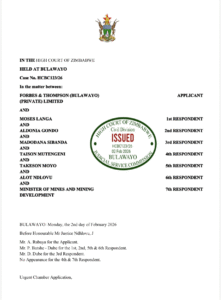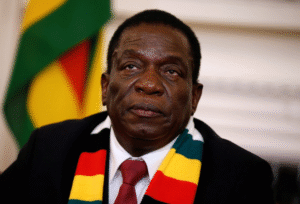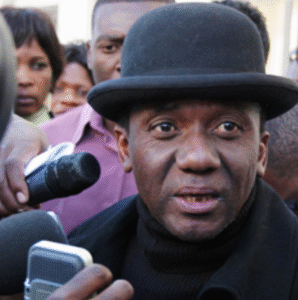A PIVOTAL STEP TOWARDS HEALING: ZIMBABWE’S CHIEFS TACKLE THE GUKURAHUNDI LEGACY

In an historic move poised to address one of Zimbabwe’s most traumatic chapters, the National Council of Chiefs, led by Deputy President Chief Fortune Charumbira, has embarked on a significant outreach program aimed at confronting the Gukurahundi massacres. This period of violence, a somber stain on Zimbabwe’s post-independence era, saw thousands of civilians in Matabeleland North and South, as well as parts of the Midlands, fall victim to atrocities committed by the Five Brigade between 1982 and 1987. The announcement, made by Chief Charumbira in a revealing conversation with esteemed journalist Ezra “Tshisa” Sibanda in Bulawayo, signals a long-awaited initiative for national healing and reconciliation.
The outreach program is designed to unfold in two critical phases, with initial public hearings set to take place in the regions most affected by the Gukurahundi violence. These hearings represent an essential platform for survivors, victims’ families, and affected communities to share their stories, an effort aimed at documenting the truth behind the years of turmoil and strife. This initiative not only seeks to acknowledge the depth of suffering endured but also to pave the path towards genuine reconciliation.
The leadership of the National Council of Chiefs in spearheading this effort is symbolic, connecting the present to a rich historical tapestry. The council, under the stewardship of Chief Mtshane Khumalo—descendant of the legendary Ndebele military strategist General Mtshane Khumalo—emphasizes the enduring spirit of resistance and resilience that has defined the Ndebele people. This linkage to a proud ancestral legacy underscores the chiefs’ commitment to leveraging traditional authority and cultural institutions in forging a united and reconciled Zimbabwe.
The Gukurahundi outreach program is a testament to Zimbabwe’s willingness to confront its past openly and honestly. By providing a space for the voices of those directly impacted by the atrocities to be heard, the initiative aims to foster a collective healing process, acknowledging the pain while striving towards a future marked by peace and mutual respect. The National Council of Chiefs’ proactive approach in addressing these historical wounds illustrates a profound dedication to the principles of justice and reconciliation, serving as a beacon of hope for a nation yearning to move beyond its darkest days.
As Zimbabwe stands on the brink of this crucial healing journey, the outreach program kindles a sense of cautious optimism across the nation. It represents a vital step in acknowledging the Gukurahundi atrocities, understanding the gravity of its impact, and committing to a process of healing and reconciliation. Under the guidance of the National Council of Chiefs, there’s a renewed belief in Zimbabwe’s capacity to navigate the complexities of its past, fostering an environment where unity and peace can flourish.
This ambitious endeavor reflects a broader vision of a Zimbabwe that acknowledges its history, learns from its mistakes, and emerges stronger, united in its diversity and enriched by its shared humanity. As the public hearings commence, they offer a promise of a new chapter for Zimbabwe, one where the scars of the past may finally begin to heal, paving the way for a future built on the foundations of understanding, respect, and collective wellbeing.





